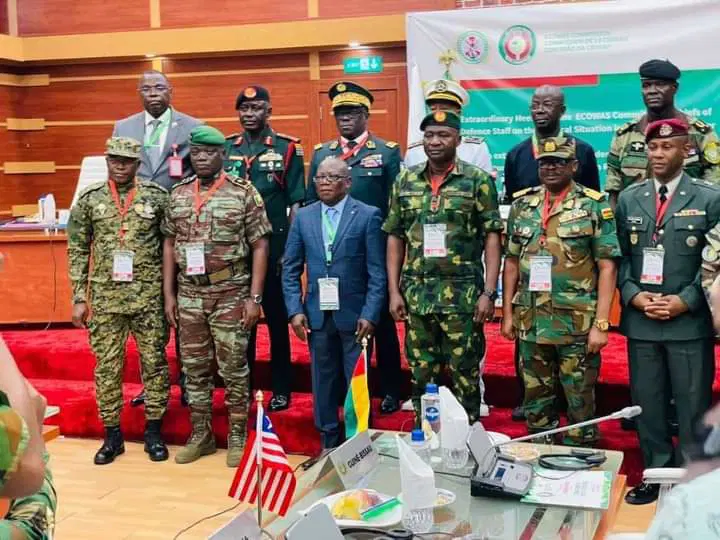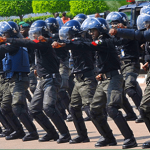In a significant diplomatic move, Nigeria’s Chief of Defense Staff (CDS), General Christopher Musa, has undertaken a crucial visit to Niger Republic to engage in high-level discussions with his counterpart, General Mousa Salou Barmo. The visit, aimed at fostering military collaboration to combat regional insecurity, comes at a time of heightened tension and uncertainty following the military takeover in Niger.
The strategic meeting between General Musa and General Barmo marks a pivotal moment in the ongoing efforts to address the complex security challenges facing the West African region. Despite Niger’s continued refusal to return to democratic governance or rejoin the Economic Community of West African States (ECOWAS), General Musa’s visit underscores Nigeria’s commitment to maintaining stability and security across its borders.
This diplomatic outreach by Nigeria’s military leadership follows a directive from President Bola Tinubu in March 2024, which saw the reopening of Nigeria’s land and air borders with Niger Republic, alongside the lifting of several economic sanctions. The sanctions were initially imposed by ECOWAS in response to the bloodless coup in July 2023 that ousted Niger’s democratically elected President Mohamed Bazoum. However, in a bid to alleviate the hardships faced by the Nigerien people, ECOWAS leaders, during an extraordinary summit in February 2024, agreed to lift these sanctions.
President Tinubu’s decision was a significant shift in Nigeria’s foreign policy towards Niger, reflecting a broader strategy to re-engage with the country despite its controversial military junta. The directive included the lifting of the no-fly zone over Niger, the resumption of commercial and financial transactions, and the unfreezing of assets belonging to the Nigerien state and its enterprises.
General Musa’s visit to Niamey, therefore, is not just a military engagement but also a continuation of Nigeria’s efforts to balance diplomacy and security in a region fraught with instability. The discussions with General Barmo are expected to focus on joint military operations, intelligence sharing, and other collaborative efforts aimed at curbing the spread of insurgency and other security threats that have plagued both nations.
This visit also sends a clear message to the international community that Nigeria, under President Tinubu’s leadership, remains a key player in regional security and is willing to engage with neighboring countries, even those under military rule, to ensure peace and stability.
As the situation in Niger continues to evolve, all eyes will be on how this newfound military collaboration will impact the broader West African security landscape. For now, General Musa’s diplomatic initiative stands as a testament to Nigeria’s unwavering commitment to regional stability and its readiness to explore all avenues, including unconventional ones, to secure its national interests.






